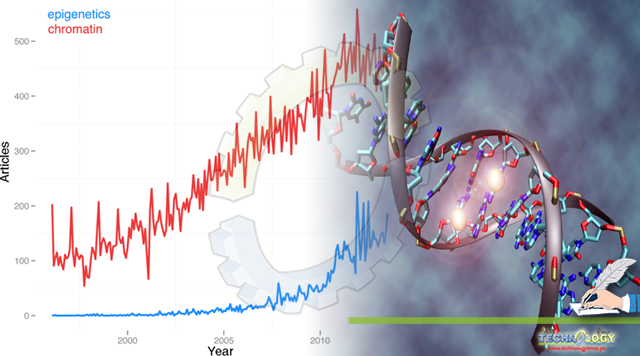Have you ever wondered why the identical twins differ from each other in terms of body weight or skin tone? Why is one twin impacted with certain psychological problems while the other twin is completely fine? Well, all the credit goes to Epigenetics.

Epigenetics refers to external modification of DNA that turns the gene on and off and therefore, the gene acts accordingly to the signal. Even though DNA is modified due to external modifications, the gene expression is not changed at all.
This means that the gene expression or the genotype does not change, but how the gene reads the expression affects the phenotype or the physical appearance depending on the external environment or other various factors.
For instance, identical twins share the same gene expression; however, their body weight, height, skin tone, or intelligence level differ due to external factors or modifications that either turn a specific gene on or off.
· Types of Epigenetic Changes
There are different ways of how epigenetics changes can affect gene expression.
- The first type of epigenetic change is called DNA Methylation and is known to be one of the main epigenetic modifications. In this, methylation turns the genes “off” and demethylation turns the genes “on.”
- The second type of epigenetic change is called Histone modification. Histone is a protein that provides structural support to a chromosome. After the modification of histones and how chromatin is arranged, it can be determined if the associated chromosomal DNA is capable of being transcribed or not.
- The third type is called Non-coding RNA. It has the ability to turn off the genes, therefore, could affect the gene expression by triggering histone modifications and DNA methylation, or by causing heterochromatin to form.
· External Factors affecting Epigenetics
It is also very important to note that changes in epigenetics does occur with growth and development, aging, behavior and the environment.
An interesting fact is that all cells have similar genes and epigenetics is the one responsible for ensuring what cells will perform what functions. Throughout the lifetime when a human is aging and growing, epigenetics changes can vary.
It was found that not all epigenetic changes are everlasting. If changes in human behavior or the environment occurs, there are possibilities of epigenetic changes to be added or removed.
Many studies have been done on epigenetics in the past several years. Their findings have proven that even though epigenetics are essential for normal human development and their health.
They can also be the reason behind the diseases in the human body. Researchers are very interested in learning and understanding more about epigenetics as they believe that epigenetic treatment could be an effective solution to counteract the diseases such as cancer, infections, or syndromes.